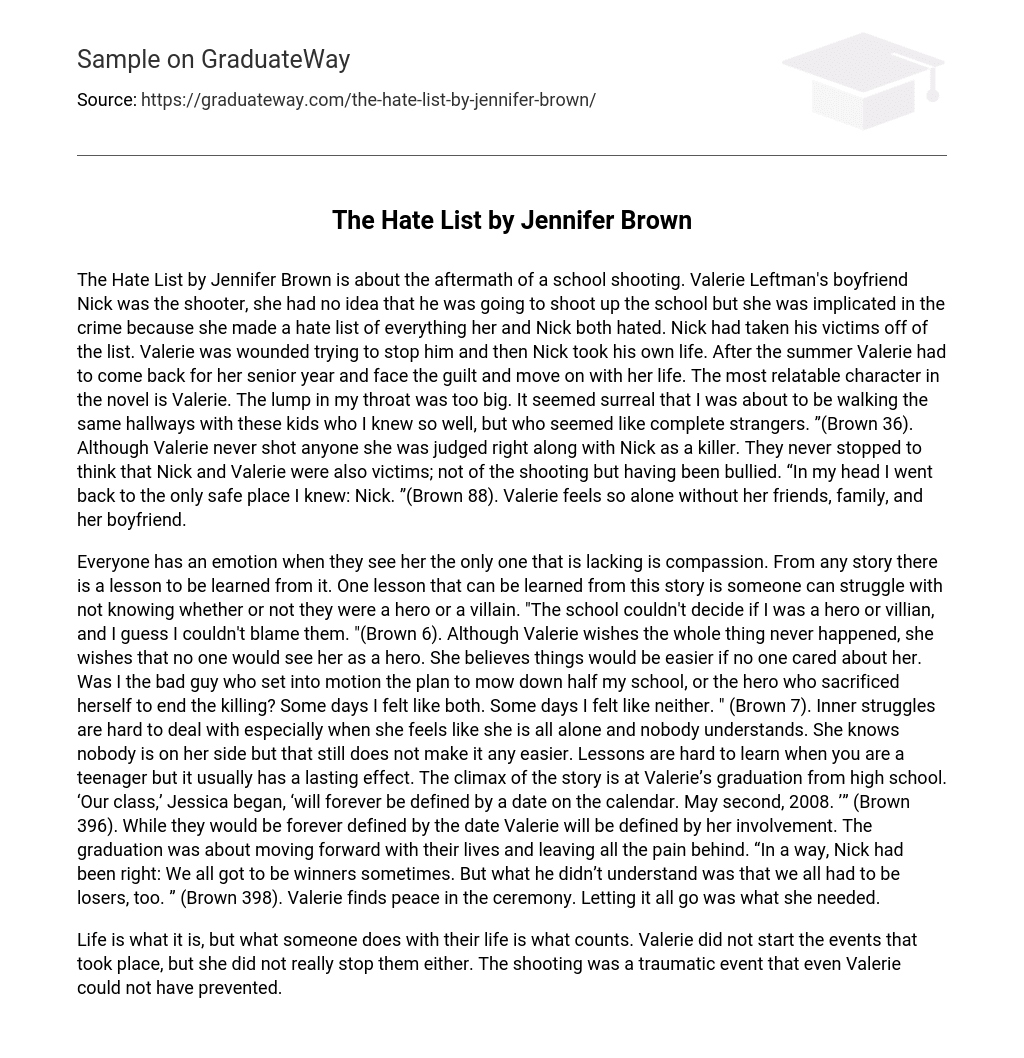The novel The Hate List by Jennifer Brown portrays the aftermath of a school shooting. Valerie Leftman’s boyfriend, Nick, unexpectedly becomes the shooter, leading to Valerie’s implication in the crime due to their joint creation of a hate list. Tragically, Nick removes his intended victims from the list before carrying out the shooting. As Valerie tries to stop him, she gets wounded, and Nick ultimately takes his own life. Returning for her senior year after the summer break, Valerie must confront her feelings of guilt and find a way to move forward. Valerie, the main character in the story, is incredibly relatable. I was overwhelmed with emotions, feeling as though a lump was stuck in my throat. It seemed surreal that I would be walking the same hallways as these familiar faces that now seemed like strangers to me (Brown 36). Despite never harming anyone herself, Valerie faces judgment alongside Nick as if she were also a killer. People fail to recognize that Nick and Valerie were also victims – not of the shooting itself but of relentless bullying. Feeling utterly alone without her friends, family, and her boyfriend, Valerie retreats to her memories of Nick – the only place she considers safe (Brown 88).
Valerie evokes emotions in everyone when she is seen, except for compassion. Each story has a lesson to be learned, including the struggle of not knowing if one is a hero or a villain. As stated by Brown (6), the school couldn’t determine whether Valerie was a hero or a villain and she understands their dilemma. While she wishes the whole incident never occurred, Valerie also desires not to be seen as a hero. She believes life would be simpler if no one cared about her. Was she the antagonist who planned to harm her classmates or the protagonist who sacrificed herself to stop the violence? Some days she feels like both and other days neither (Brown 7). Inner battles are difficult, especially when Valerie feels isolated and misunderstood. She knows that nobody supports her, which only adds to her struggles. Lessons can be challenging for teenagers but they have long-lasting effects. The climax of this narrative takes place at Valerie’s high school graduation ceremony. “Our class,” Jessica began, “will always remember a specific date – May second, 2008” (Brown 396). While their class will forever associate that date with their experiences, Valerie will also be defined by her role in it. Graduation represents moving forward and leaving behind all the pain endured during those events. According to Brown (398), Valerie finds inner peace during the ceremony as she realizes that everyone, including herself, faces failure at times.
She needed to release everything, and it was crucial for her.
Life’s meaning varies based on one’s chosen lifestyle, as Valerie did not instigate or attempt to halt the unfolding events. The shooting, an upsetting incident outside of Valerie’s influence, presents a paradox where she is both a survivor and a victim. Although Valerie cannot erase the memories, she can eventually discover solace and recover.





